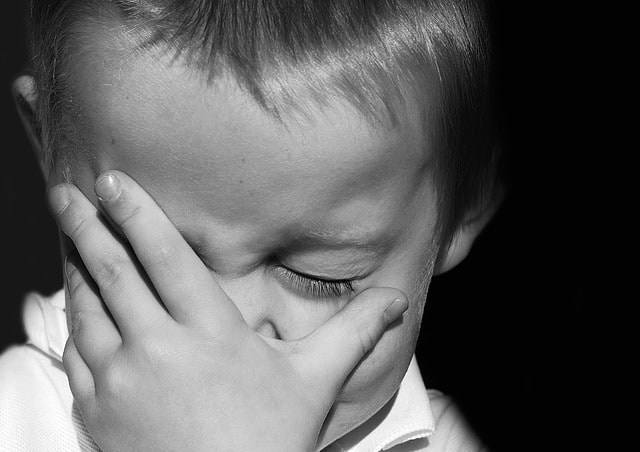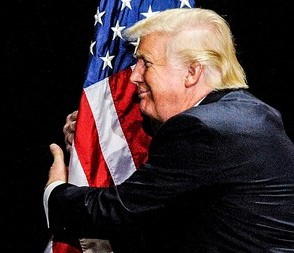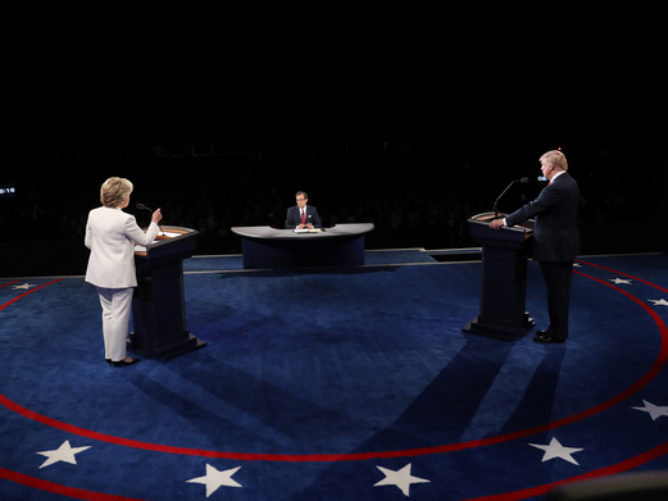A mother and her early-teen daughter stand at the door to Starbucks as I ride up on the bike, both their faces planted on their dumbphones. The mother, an attractive woman in her 40’s, looks up. I smile; she scowls.
 Sitting outside as I usually do, the mother is un-self-consciously short with the girl. She asks in a mean tone: “Are you sure it’s here?” Whatever personal reaction I had to her scowl is instantly immersed in the larger context, which goes far beyond their mother-daughter relationship.
Sitting outside as I usually do, the mother is un-self-consciously short with the girl. She asks in a mean tone: “Are you sure it’s here?” Whatever personal reaction I had to her scowl is instantly immersed in the larger context, which goes far beyond their mother-daughter relationship.
Outwardly, she’s a nice-looking woman; inwardly, there’s an ugliness about the mother, and it’s already rubbing off on the daughter. I have the feeling there’s no father in the daughter’s life—at least not one worth calling a father. But that isn’t the larger context.
The larger context is the abysmal state of this culture, which Trump’s vileness is only symptomatic. The sorry state of relations between women and men has become the norm, and that condition feeds the Trump phenomenon as much as white supremacy and many people’s feelings of being left behind by the global economy.
If so, all the verbiage about college-educated white women being the deciders in this election misses the mark. In an ironic echo of the distant past, when the shoe was on the other foot, there are many Democratic men who aren’t telling their wives they’re not voting for Hillary, even if they can’t bring themselves to vote for Trump.
It’s not because they’re sexist, but because she rubs most men the wrong way. If Elizabeth Warren had run, things would be different. Warren isn’t just a favorite of Bernie Bros, but of men generally.
Both liberal and conservative worldviews have been left with nothing to fall back on but sentimental schlock during this interminable, dark and depressing campaign season. Or rather seasons. A sane democracy limits choosing its politicians to one season. In America, the presidential race lasts for 6 or even 8 seasons.
At bottom, Trump has provided the ugliest Americans with a perfect vehicle for projecting their hatred and misery, while providing progressives with a vehicle for maintaining their belief that’s he’s the exception to American exceptionalism, rather than its lowest expression and logical end.
There are those who say America has “a great task of moral repair ahead of us.” What do they mean by “moral repair,” and how do they recommend we go about it?
I’d like to believe it’s a euphemistic way of saying we need to address the long-neglected underlying rot that has erupted in political discourse this year. But in the next breath they superficially speak of “renouncing the Trump style.”
Trump tells external lies wrapped around a projected internal truth; Hillary tells external truths wrapped around an internal, unaddressed lie. Thus we have Trump’s “America is in terrible shape,” and Hillary’s “we are great because we are good.”
Which is worse, wrapping a truth in lies, or wrapping a lie in truths?
The “angry populists of the right and left” critique simply doesn’t cut it. Though even conservatives see the rot in America in terms of the Republican Party rather than for what it is—a reflection of the state of the republic itself. Trump has not “dragged the whole society down to a level of degradation;” rather, the causal deterioration of the culture and people is in full flower.
The commentariat constantly speaks about how Trump is living in his own self-made reality. But are The Donald’s projections fundamentally any different than perpetuating the fantasy of a “free, American-led world order?” Which is worse, Trump’s simplistic nationalistic garbage, or Hillary’s sophisticated nationalistic garbage?
In the end, Donald Trump and his mob of millions is America’s underside made manifest. There are exceptions of course, and the mainlining media is expert at sentimentalizing and propagandizing them. But as the saying goes, the exceptions prove the rule.
In a dead culture with derelict politics, calling for “dynamism with cohesion” is delusion. And carrying on about “globalism with solidarity” in terms of “patriotic purpose” is a complete contradiction in terms.
In truth, the question hasn’t been about America for over a generation. The increasingly urgent question is the human prospect in a global society.
Can enough people inside the United States face America as it is before the election to defeat Trump? And whichever way the US election goes, can a few people outside the United States begin to prepare a genuine alternative for the world?
Martin LeFevre

